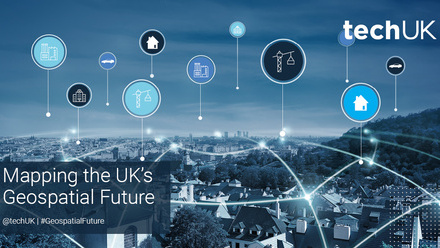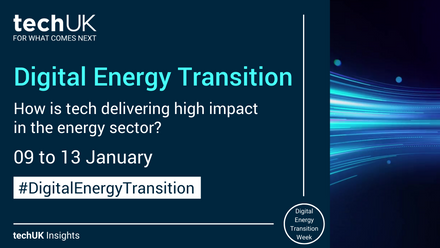Digital Identity and Distributed Ledger Technologies: Opportunities and challenges ahead
On 3 February, as part of techUK’s #DigitalID2022 event series and Blockchain Reimagined campaign, techUK hosted a panel discussion exploring digital identity and distributed ledger technologies. The panel discussed how these two technologies can work together, and how to ensure they are designed, developed and deployed in a trustworthy, inclusive and sustainable way.
The panel included:
- Genevieve Leveille, CEO and Principal Founder, Agriledger
- Shiv Aggarwal, CEO, EarthId and Regional Director EMEA, Government Blockchain Association
- Paco Garcia, CTO, Yoti
- Aman Kohli, CTO, Banking and Capital Markets UKI, DXC Technology
You can watch the full webinar here or read our summary of the key insights below:
What are digital ID and distributed ledger technologies and how might they work together?
Opening the session, our panel discussed what digital ID and distributed ledger technologies (DLT) are, and how they can work together. Paco Garcia, Yoti, explained that a digital identity is a collection of attributes and factual statements about who you are in a digital container such as a wallet, raising the challenge of how to ensure trust between issuer, holder, and verifier when these identities are used.
Traditionally, digital identity solutions utilise a centralised infrastructure that holds and manages digital identity data, whereas DLT – as Shiv Aggarwal, EarthId and Government Blockchain Association (GBA) noted – seeks to decentralise such authority and control by managing this information through a public and immutable distributed ledger. Our panellists highlighted that employing DLT in the context of digital ID can offer benefits around resiliency, transparency, and user autonomy, whilst also facilitating privacy through empowering users to share only the data that is required.
Use cases for digital ID and DLT
There are a huge number of potential use cases for these combined technologies, underpinned by the need of all governments and sectors to be able to verify the identity of employees, users, or citizens through increasingly digital means.
The panel highlighted myriad potential applications across sectors, including:
- Digital voting: leveraging technology for a more inclusive democracy
- Education and employment: utilising wallet based DLT to enable a more seamless experience when verifying educational certificates and accreditation
- Healthcare: utilising technology for confidential information sharing across healthcare providers and ensuring the patient can own this information, share, and use it to get better healthcare services locally and globally
- Travel and hospitality: following the pandemic and the shift towards more contactless interactions, utilising wallet based DLT to travel seamlessly using different modes of travel across the world
- Insurance: leveraging technology to remove friction and allow for more seamless digital insurance claims
Looking at pilots and projects currently underway, Paco Garcia, Yoti, also pointed to the travel sector and the blockchain-based digital ID solution ‘TravelPass’ which acts as a wallet for COVID-19 certificates and test results that puts privacy first. Beyond travel, Paco noted efforts in Canada to create a Pan Canadian Trust Framework that employs DLT and digital ID to interoperate between different provinces in Canada, as well as the work in the EU on EIDAS and how DLT can facilitate a less-siloed system that can operate as part of a wide ecosystem across Europe.
As technology evolves, use cases will continue to expand even further. The growing use of NFTs is one area of interest, showing how digital ownership can be tied to a digital identity, however misconceptions and controversy around this technology illustrate the need to ensure these are developed and deployed in a responsible way.
Managing and designing distributed data access for digital ID
As Aman Kohli, DXC, highlighted, wallet technology can work with both digital ID and DLT, providing a method of storing payment cards, tickets, and other personal identifiable information, as well as a secure and accessible way for users to access the public ledger.
However, a key question for DLT and digital ID will be considering how to deal with the fact that personal data on the public ledger is permanent and immutable. It is essential this thinking is done in the design phase, storing personal data in a private secure container (such as a wallet) and ensuring that the technology is certified. There are still justifiable concerns on this technology, which will continue to evolve as the first use cases are deployed.
Public ledgers allow for transparency and scale and are managed by distributed consensus, whilst private ledgers afford more privacy and are managed by a small, trusted group. Our panellists were agreed that tech is about trade-offs and emphasised that digital identity can work with both types of ledger, with the key consideration centred upon the specific use case and requirements.
Fostering inclusion through digital ID and DLT
The World Bank estimates there are around 1 billion people without some proof of identity, underpinning the importance of inclusion when designing and deploying these combined technologies.
Shiv emphasised biometrics as a key aspect of the inclusion agenda, as even if one does not have physical identification, unique biometrics are one thing every individual has that represents them uniquely. Indeed, it will be critical to ensure digital ID and DLT is usable, combining with other technologies as well as physical documents and feature phones to make it work for the masses.
Spotlighting efforts to drive inclusion in financial services using digital identity from around the world, Aman highlighted how, in India, the net was widened for financial participation to those without a bank account, at the same time tackling the issue of ‘leakage’ with payments not reaching the intended recipient in full.
Similarly, Genevieve Leveille, Agriledger, spoke of a project in Haiti that utilises DLT as a means of provenance for the value chain as a farmer sells their goods up to market, working with Yoti to use NFC tags containing identity information. This digital identity can be used to track a product’s journey, how much money a farmer can expect to receive, and be used to withdraw money too.
The role for DLT, as Paco explained, is in delivering trust along the supply chain and making such projects more resilient.
Building public trust in digital ID and DLT
Just as critical as ensuring inclusion in the design, development and deployment of digital identity and DLT is building public trust in the technologies.
In order to build this trust, Paco said that we need to get people using the technology in a safe way. He raised the idea of sandboxes that allow different stakeholders and players in the ecosystem to show and demonstrate the value it can bring to people’s lives as one potential way to do this. Following this point, Aman mentioned that people don’t tend to think about the tech stack behind solutions, and that building trust is thus more about finding the use cases and rolling it out from there.
Drawing upon his experience within the GBA, Shiv noted that one of its key aims is to encourage and facilitate public discourse between all stakeholders, as well as pilots, to build understanding and sustainably adopt this tech. Ultimately, solutions must benefit individuals and organisations to prove its value and build trust.
Driving progress on digital ID and DLT in the UK
Taking a forward view, our panellists considered what is needed in the UK to develop the use cases and create the leadership around these combined technologies that we’ve seen in other spaces such as cyber.
Aman said that it is key to first get digital identity rolled out and worry about the flavours later. It is important to build the fundamentals and plumbing that lets other solutions be built by the market.
Paco echoed Aman’s comments, and raised the Home Office’s current sandbox for Age Verification in supermarkets as an example of good progress, however he added that this is currently taking place on a small scale and the next step will be enabling a rich ecosystem of multiple players using DLT.
Closing the discussion, Shiv emphasised the importance of a balance between discussion and implementation. The UK is a fintech hub and leader and rolling out digital identity can boost that positioning, as well as provide the UK something to build on with new technologies and solutions such as DLT.

Jake Wall
Jake has been the Policy Manager for Skills and Future of Work since May 2022, supporting techUK's work to empower the UK to skill, attract and retain the brightest global talent, and prepare for the digital transformations of the future workplace.

Laura Foster
Laura is techUK’s Associate Director for Technology and Innovation.







